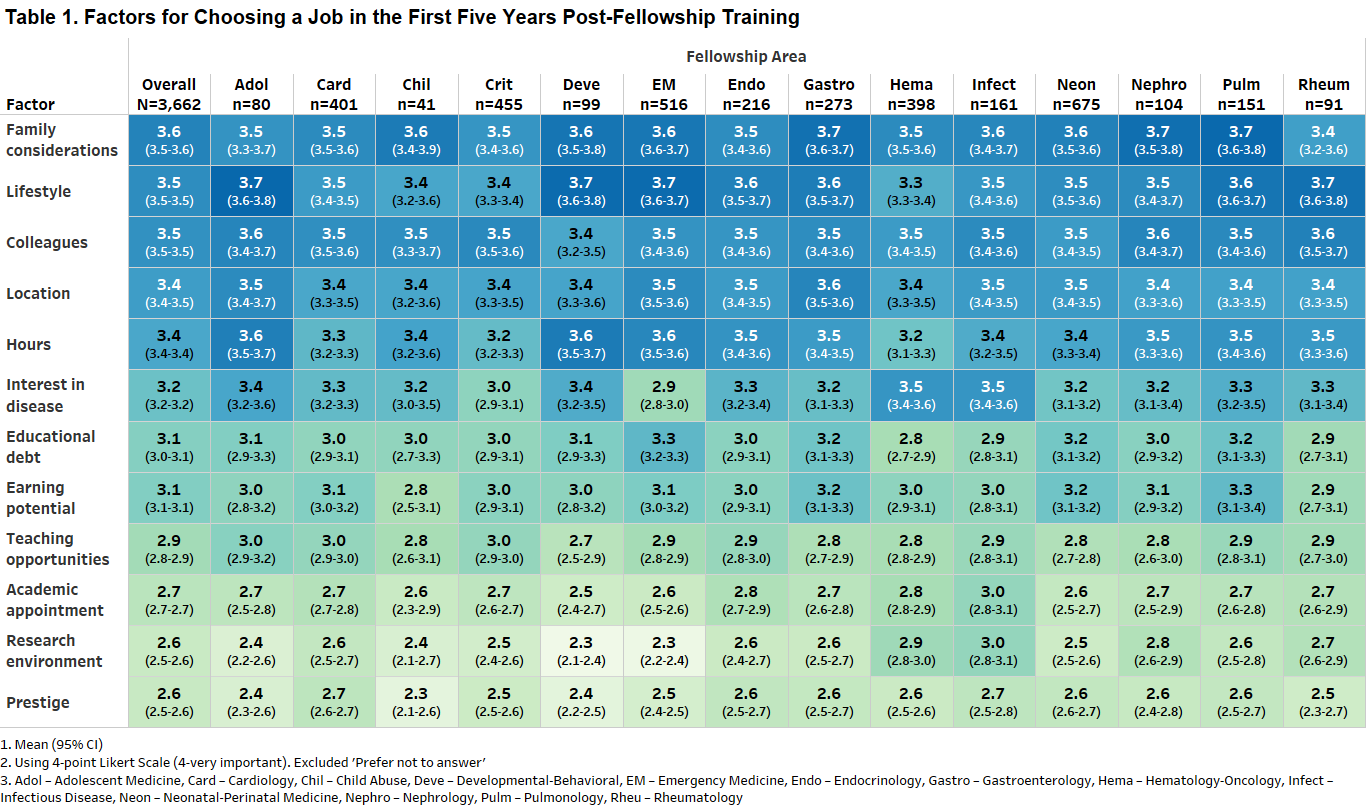Medical Education: Fellow
Medical Education 3: Fellow 1
493 - Pediatric Subspecialty Fellows Choice of a Job Post-Fellowship
Publication Number: 493.124

Jennifer C. Gutierrez-Wu, MD (she/her/hers)
Primary Care Research Fellow
UNC
Chapel Hill, North Carolina, United States
Presenting Author(s)
Background: The number of pediatric subspecialists has increased over the past two decades, however millions of children live at great distances from pediatric subspecialty care. Understanding what influences subspecialists’ first job selection, as they potentially move around the country, is important in ensuring access to subspecialty pediatric care.
Objective:
To describe the association between pediatric subspecialty and importance of factors for choosing a job post-training.
Design/Methods:
Cross-sectional study of data from the American Board of Pediatrics (ABP) Subspecialty In-training Examination (SITE) post-examination survey, administered annually to first- year subspecialty fellows enrolled in one of 14 subspecialties. The study sample consisted of first-year subspecialty fellows who completed the SITE survey during 2018-2019 and 2021. Data from the 2020 SITE survey were excluded due to a temporary change in survey questions. Our independent variable of interest was pediatric subspecialty. The primary dependent variable was the importance of various factors in choosing a job in the first 5 years following completion of training (1 = not at all important to 4 = very important). Means with 95% confidence intervals were computed to summarize scores for factor’s importance in selecting a job post-training by subspecialty.
Results: A total of 3,661 pediatric fellows were included in the study (response rate 95.3%). Across all specialties, family considerations and lifestyle were among the most important factors in choosing a job after fellowship training. The importance of colleagues was also highly rated for most subspecialties. For most subspecialties, research environment was among one of the least important factors in job selection after training (Table 1).
Conclusion(s):
Across all subspecialties, family considerations and lifestyle are the most important factors for choosing a job after training. Increasing family demands in dual households, particularly as trainees build families during training, and an increasing awareness of burnout and prioritization of wellness may explain our findings. Prior research suggests family demands are one of the most important factors in pediatricians’ decision to leave their current role. Better understanding of family considerations will guide institutional efforts to support these priorities among trainees, facilitate recruitment and retention efforts of pediatricians, and create an adequately distributed pediatric workforce. 
